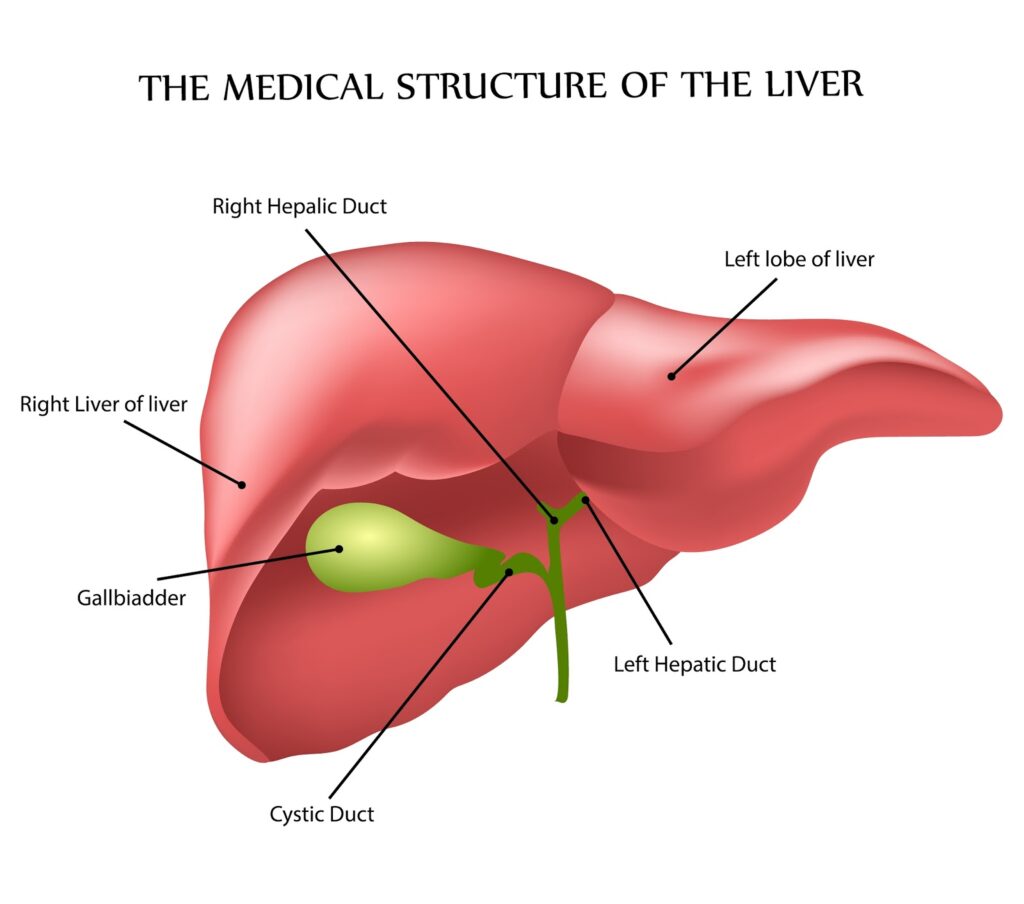The liver is one of the most important organs in our body, responsible for a wide range of functions that are essential to maintaining good health. From filtering toxins out of our blood to producing vital proteins and enzymes, the liver plays a critical role in keeping us alive and well.
In this blog post, we will take an in-depth look at the liver and its functions, exploring everything from how it works to what can go wrong when it malfunctions. By the end of this article, you should have a better understanding of this vital organ and why it’s so important to keep it healthy.
What is the Liver?
The liver is a large, reddish-brown organ located on the right side of your abdomen, just below your diaphragm. It weighs around 3 pounds and is roughly the size of a football. The liver is divided into two main lobes, each of which is made up of smaller lobules.
The liver is unique among our organs in that it has remarkable regenerative abilities. If part of the liver is damaged or removed, the remaining tissue can grow back and restore full function within a matter of weeks.
Functions of the Liver
The liver performs many different functions, all of which are essential to maintaining good health. Some of these functions include:
- Detoxification: One of the primary functions of the liver is to filter toxins and other harmful substances out of our blood. These toxins can come from a variety of sources, including alcohol, drugs, pollutants, and even certain foods.
- Metabolism: The liver is also responsible for metabolizing nutrients and converting them into energy or storing them for later use. This includes carbohydrates, fats, and proteins.
- Bile Production: Another important function of the liver is to produce bile, a digestive fluid that helps break down fats in our food.
- Hormone Regulation: The liver plays a key role in regulating hormone levels in our body, including insulin and thyroid hormones.
- Blood Clotting: The liver produces several proteins that are essential for blood clotting, which helps to prevent excessive bleeding after an injury.
- Immune Function: The liver also plays a critical role in our immune system by producing proteins that help fight off infections and other foreign invaders.
Common Liver Conditions
Pain Management
- Despite its remarkable regenerative abilities, the liver is not invincible. There are many different conditions that can affect the liver, ranging from minor issues like fatty liver disease to more serious problems like cirrhosis or liver cancer.
- Fatty Liver Disease: This condition occurs when fat accumulates in the liver, causing inflammation and damage to the tissue. It’s often caused by obesity, high cholesterol, or alcohol abuse.
- Hepatitis: Hepatitis is a viral infection that causes inflammation of the liver. It can be caused by several different viruses, including hepatitis A, B, and C.
- Cirrhosis: Cirrhosis is a late-stage liver disease that occurs when scar tissue replaces healthy liver tissue over time. It’s often caused by chronic alcohol abuse or hepatitis.
- Liver Cancer: Liver cancer can develop as a result of long-term damage to the liver, such as from cirrhosis or hepatitis. Symptoms may include abdominal pain, weight loss, and jaundice.
Preventing Liver Damage
While some liver conditions are unavoidable, there are many things you can do to reduce your risk of developing liver damage. Here are some tips for keeping your liver healthy:
- Limit Alcohol Consumption: Drinking too much alcohol can cause significant damage to your liver over time. If you choose to drink, it’s important to do so in moderation.
- Maintain a Healthy Weight: Obesity is a major risk factor for fatty liver disease, so maintaining a healthy weight through diet and exercise is crucial.
- Get Vaccinated: Getting vaccinated against hepatitis A and B can help protect your liver from these viral infections.
- Avoid Toxins: Exposure to certain chemicals and pollutants can damage your liver over time, so it’s important to avoid them whenever possible.
- Eat a Healthy Diet: Eating a diet rich in fruits, vegetables, and whole grains can help keep your liver healthy by providing essential nutrients and antioxidants.




